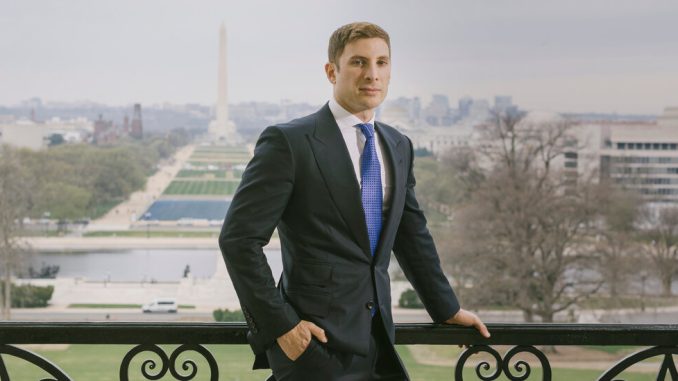
In recent weeks, American lawmakers have moved to ban the Chinese-owned app TikTok. President Biden reinforced his commitment to overcome China’s rise in tech. And the Chinese government added chips from Intel and AMD to a blacklist of imports.
Now, as the tech and economic cold war between the United States and China accelerates, Silicon Valley’s leaders are capitalizing on the strife with a lobbying push for their interests in another promising field of technology: artificial intelligence.
On May 1, more than 100 tech chiefs and investors, including Alex Karp, the head of the defense contractor Palantir, and Roelof Botha, the managing partner of the venture capital firm Sequoia Capital, will come to Washington for a daylong conference and private dinner focused on drumming up more hawkishness toward China’s progress in A.I.
Dozens of lawmakers, including Speaker Mike Johnson, Republican of Louisiana, will also attend the event, the Hill & Valley Forum, which will include fireside chats and keynote discussions with members of a new House A.I. task force.
Tech executives plan to use the event to directly lobby against A.I. regulations that they consider onerous, as well as ask for more government spending on the technology and research to support its development. They also plan to ask to relax immigration restrictions to bring more A.I. experts to the United States.
The event highlights an unusual area of agreement between Washington and Silicon Valley, which have long clashed on topics like data privacy, children’s online protections and even China.
“At the end of the day, whether you are in industry or government, or whatever side of the aisle you are on, we play for team America,” said Representative Jay Obernolte of California, the Republican chair of the House A.I. Task Force, who will give opening remarks at the conference.
After the rise over the past year of generative A.I. — technology that has the potential to fundamentally shift productivity, innovation and employment trends — lobbying on the topic has exploded. Last year, more than 450 companies, nonprofits, universities and trade groups reported lobbying on A.I., more than double the number of organizations in the previous year, according to OpenSecrets, a nonprofit research group. Palantir more than doubled its spending on lobbying last year to $5 million, its highest level on record.
As tech leaders capitalize on anti-China fervor in Washington, civil society groups and academics warn that debates over competition for tech leadership could hurt efforts to regulate potential harms, such as the risks that some A.I. tools could kill jobs, spread disinformation, and disrupt elections.
“The dynamics of this U.S. v. China race has profound implications because on the other side of slowing down China is minimal friction and regulation for U.S. companies,” said Amba Kak, who is the executive director of the AI Now Institute, a research firm, and a former senior adviser on A.I. to the Federal Trade Commission.
A.I. experts say China lags the United States in generative A.I. by at least a year and may be falling further behind, although a new study suggests that it is ahead in the talent.
May’s event is being organized by Jacob Helberg, a senior adviser to Palantir and a member of the U.S.-China Economic and Security Review Commission, which reports to Congress on national security threats posed by China. He expanded this year’s forum from the first gathering he organized last year, which was a private dinner focused largely on the threat of TikTok, which is owned by Beijing-based ByteDance.
In addition to A.I., lawmakers speaking at the event in the Capitol will push for the Senate to pass legislation to ban TikTok, and Tom Mueller, a founding employee of SpaceX, will speak about the space race between the United States and China. Attendees will include Senator Mike Rounds, Republican of South Dakota and the ranking member of the Armed Services Committee, and Representative Ritchie Torres, a New York Democrat on the House Select Committee on the Chinese Communist Party.
“Tech companies can’t be neutral any more,” Mr. Helberg said, adding that he recuses himself from any work involving contracts on the U.S.-China Economic and Security Review Commission that could give Palantir an advantage.
Venture capitalists attending the event have dozens of A.I. investments. Sequoia has invested in more than 70 A.I. startups. Khosla Ventures, a $15 billion venture firm, has several investments, including in OpenAI, the company behind the ChatGPT chatbot.
“It’s become even more obvious, even more critical, that we treat China as an adversary,” said Vinod Khosla, the head of Khosla Ventures who will speak at the forum. “What I’m worrying about is Western values versus a different set of values in China.”


Be the first to comment